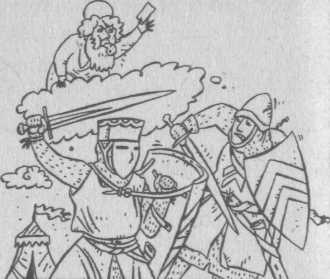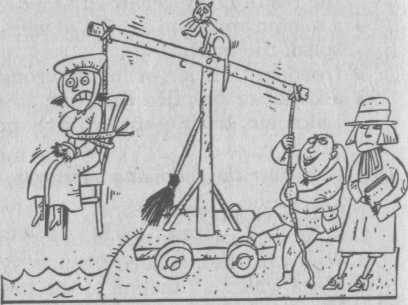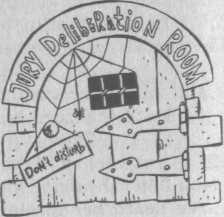Just_English_2 часть. Just English. Английский для юристов 43
 Скачать 1.96 Mb. Скачать 1.96 Mb.
|
|
Police Technology in the USA  Requests for police services are generally transmitted to headquarters by telephone and then by radio to officers in the field. Police have long operated on the theory that fast response time results in more arrests and less risk or injury to victims. The current trend is toward handling calls by priority, with emergency response reserved for cases involving an injured party or those in which a reasonable chance exists to prevent a crime or make an arrest at the scene. Modern computer-assisted dispatching systems permit automatic selection of the nearest officer in service. In some cities, officers can receive messages displayed on computer terminals in their cars, without voice communication from headquarters. An officer, for example, can key in the license number of a suspect car and receive an immediate response from the computer as to the status of the car and the owner's identity. An increasing number of agencies are now using computers to link crime patterns with certain suspects. Fingerprints found at crime scenes can be electronically compared with fingerprint files. In recent years technological advances have been made in such areas as voice identification, use of the scanning electron microscope, and blood testing which is an important tool because only 2 persons in 70,000 have identical blood characteristics. Some of the new laboratory techniques, although highly effective, are extremely expensive, so their use is limited to the most challenging cases. TASK 5. Answer the following questions:
TASK 6. Find in the text above the English equivalents for the following words and expressions:
TASK 7. Render the following text into English paying special attention to the words and expressions given in bold type: Большое число расследований уголовных преступлений, ведущихся американскими правоохранительными органами, вынудило ФБР приступить к созданию новой криминалистической лаборатории. Лаборатория будет оснащена новейшим оборудованием для баллистической, химической, судебно-медицинской и других видов экспертизы, необходимых для расследования различных преступлений. Лаборатория ФБР, которая находится в Вашингтоне, на протяжении многих лет остается крупнейшей и лучшей в стране. Однако в последнее время она не справляется с огромным потоком заданий, поступающих не только от головного ведомства, но и из других правоохранительных органов. Необходимость создания новой лаборатории продиктована также тем, что ФБР все чаще приходится заниматься расследованием сложнейших дел, связанных с международным терроризмом, организованной преступностью и контрабандой наркотиков. Руководство ФБР планирует создание единой компьютерной базы данных всех правоохранительных органов США, которая будет содержать информацию о преступниках и их сообщниках и вещественных доказательствах, собранных в ходе расследований. 106 Just English. Английский для юристов    It's Interesting to Know Alphonse Bertillion It's Interesting to Know Alphonse BertillionThe problem of identifying criminals was made much easier by Bertillion, who, in 1882, invented a system called anthropometry. As head of the identification department of the Paris police he had careful measurements made of the head, limbs and body of every criminal he could lay his hands on, who could then not get away in the future by giving a false name. Photography was also used for the first time. Many hundreds of criminals were caught in the first years of the system's operation, but it was soon replaced by fingerprinting. To Bertillion, though, must go the credit for creating the science of human identification.   DEBATE DEBATECybercop: An Alternative to Policeman? Divide into groups — pro and con, and conduct a debate on the necessity of new technologies in police work. Appoint the {Chair' of the debate who will give the floor to the speakers of both teams. Use the active vocabulary from the Unit. Chapter IV FAIR TRIAL: THE JURY  108 Just English. Английский для юристов Chapter IV. Fair Trial: the Jury 109   UNIT 1. ORIGINS OF THE JURY UNIT 1. ORIGINS OF THE JURYB  RAINSTORM RAINSTORMAcquittal / Sentencing Apprehension Bringing charges Bringing in a verdict Imprisonment Jury trial Police custody Questioning Arrange the legal actions listed above into a logical chain. What is the place of jury trial in this sequence? Early Juries  A jury is a body of lay men and women randomly selected to determine facts and to provide a decision in a legal proceeding. Such a body traditionally consists of 12 people and is called a petit jury or trial jury. The exact origin of the jury system is not known; various sources have attributed it to different European peoples who at an early period developed similar methods of trial The jury is probably of Frankish origin, beginning with inquisition, which had an accusatory and interrogatory function. Trial by jury was brought to England by the Normans in 1066. In medieval Europe, trials were usually decided by ordeals, in which it was believed God intervened, revealing the wrongdoer and upholding the righteous. In the ordeal by water, for instance, a priest admonished the water not to accept a liar. The person whose oath was being tested was then thrown in. If he floated, his oath was deemed to have been perjured. If he was telling the truth, he might drown but his innocence was clear. In 1215, however, the Catholic Church decided that trial by ordeal was superstition, and priests were forbidden to take part. As a result, a new method of trial was needed, and the jury system emerged. At first the jury was made up of local people who could be expected to know the defendant. A jury was convened only to "say the truth" on the basis of its knowledge of local affairs. The word verdict reflects this early function; the Latin world from which it is derived, veredictum, means "truly said". In the 14th century the role of the jury finally became that of judgment of evidence. By the 15th century trial by jury became the dominant mode of resolving a legal issue. It was not until centuries later that the jury assumed its modern role of deciding facts on the sole basis of what is heard in court. TASK 1. Find in the text the words that mean the following:
TASK 2. Answer the following questions:
TASK 3. Read the following text and write down the Russian equivalents for the words and expressions given in bold type: Ordeal Ordeal is a judgement of the truth of some claim or accusation by various means based on the belief that the outcome will reflect the judgement of supernatural powers and that these powers will no Just English. Английский для юристов Chapter IV. Fair Trial: the Jury 111   ensure the triumph of right. Although fatal consequences often attend an ordeal, its purpose is not punitive. ensure the triumph of right. Although fatal consequences often attend an ordeal, its purpose is not punitive.The main types of ordeal are ordeals by divination, physical test, and battle. A Burmese ordeal by divination involves two parties being furnished with candles of equal size and lit simultaneously; the owner of the candle that outlasts the other is adjudged to have won his cause. Another form of ordeal by divination is the appeal to the corpse for the discovery of its murderer. The ordeal by physical test, particularly by fire or water, is the most common. In Hindu codes a wife may be required to pass through fire to prove her fidelity to a jealous husband; traces of burning would be regarded as proof of guilt. The practice of dunking suspected witches was based on the notion that water, as the medium of baptism, would 'accept', or receive, the innocent and 'reject' the guilty. Court officials would tie the woman's feet and hands together and then drop her into some deep water. If she went straight to the bottom and drowned, it was a sure sign that she wasn't a witch. On the other hand, if she didn't sink and just bobbed around for a while, the law said she was to be condemned as a witch.  In ordeal by combat, or ritual combat, the victor is said to win not by his own strength but because supernatural powers have intervened on the side of the right, as in the duel in the European Middle Ages in which the 'judgement of God' was thought to determine the winner. If still alive after the combat, the loser might be hanged or burned for a criminal offence or have a hand cut off and property confiscated in civil actions. TASK 4. Answer the following questions:
It's Interesting' to Know Instructions for Justices of the Peace in The 16thand 17th Century England Relating to Witches
Now against these Witches, (being the most cruel, revengeful, and bloody of all the rest) the Justices of Peace may not always expect direct evidence, seeing all their works are the works of darkness, and no witnesses present with them to accuse them. These are the main points to discover and convict these Witches; for they prove fully that those Witches have made a League with the Devil: I. These Witches have ordinarily a Spirit, which appeareth to them; sometimes in one shape, sometimes in another; as in the shape of a Man, Woman, Boy, Dog, Cat, Foal, Fowl, Hare, Rat, Toad, & And to these Spirits they give names, and they meet together to christen them (as they speak). 10. The Testimony of other Witches, confessing their own Witchcrafts, and witnessing against the suspected, that they have Spirits or Marks; that they have been at their meetings; that they have told them what harm they have done. II. If the dead body bleeds upon the Witches touching it.
112 Just English. Английский для юристов Chapter IV. Fair Trial: the Jury 113    UNIT 2. JURY DUTY UNIT 2. JURY DUTYTASK 1. Read the following text and write down Russian equivalents for the words and expressions in bold type: The Fear of Jury Duty  For Americans, serving jury duty has always been a dreaded chore. There is plenty of history behind this fear. In colonial days, jurors were locked in a small room with no ventilation and were denied food and water in an attempt to inspire a quick verdict. If the jurors returned with the wrong decisions, they too were charged with a crime. As more and more laws were passed, the rules of evidence expanded and trials became longer, which resulted in more technical and increasingly boring hours for jurors. Trial lawyers have tried to change the boredom by replacing endless hours of testimony with computer animation, video reconstructions, color charts and graphics to better explain the evidence. The judicial system depends on juries. The United States Constitution guarantees its citizens the right to a trial by jury of their peers. When summoned for jury duty, Americans should look upon it as an opportunity to serve their country, their community, and their fellow citizens. Each year, over 5 million Americans are summoned for jury duty to render verdicts in approximately 120,000 trials.  Prospective jurors are chosen at random from voter registration lists. When people are chosen for jury duty, they are often shown a video tape explaining the jury system or given a HANDBOOK ON JURY SERVICE. TASK 2. Answer the following questions:
fhe following text comes from a handbook on jury service for the U.S. citizens. |
